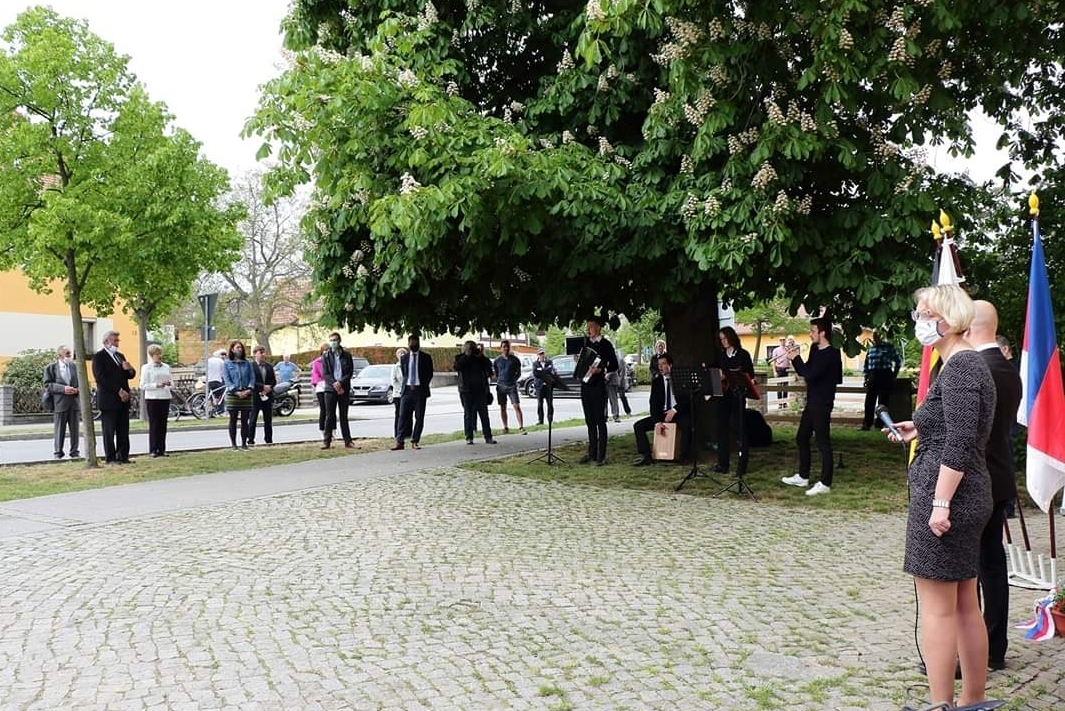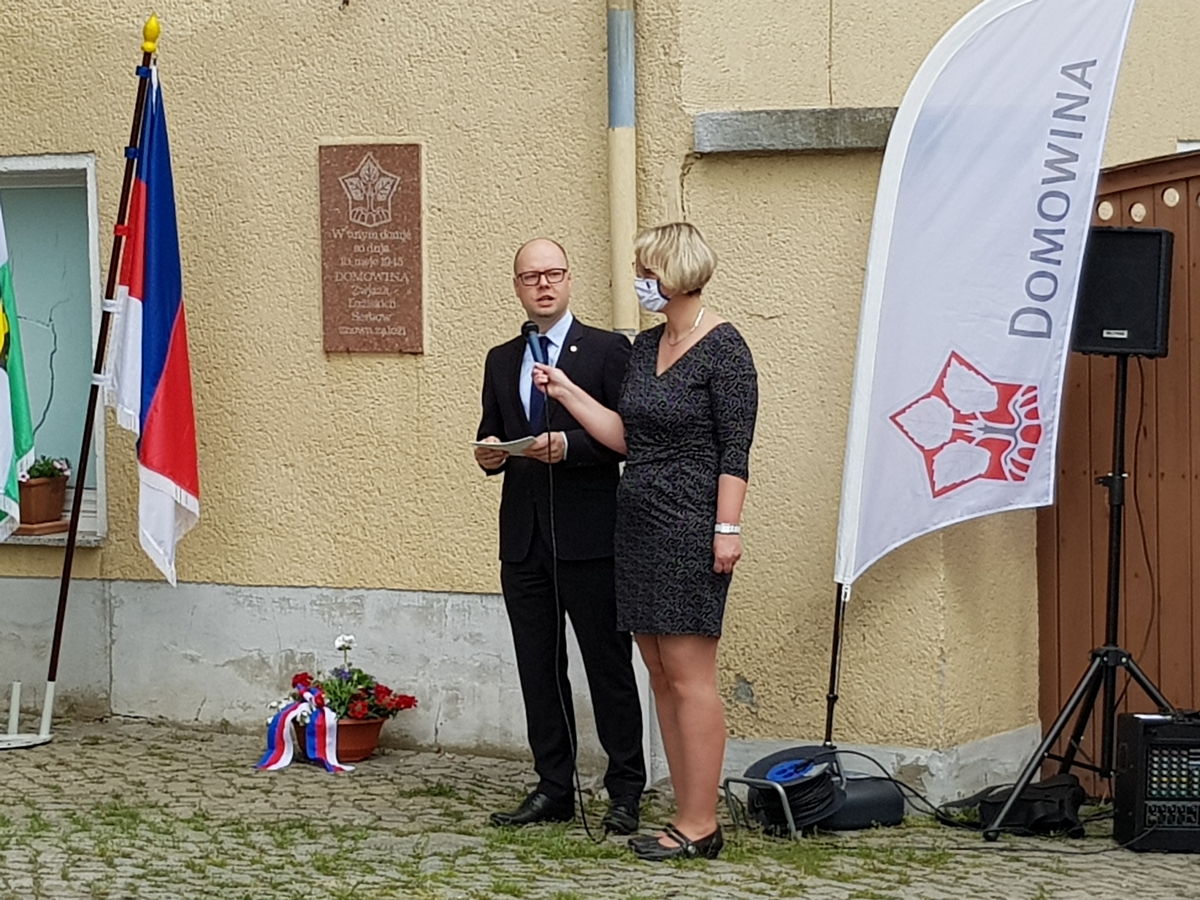
Do You Speak Corona? There were too many positive examples in the Lusatian Sorb community to highlight just one
24.08.2020Pictured: This is how it looked at the first public Domowina event after the relaxation of the corona measures. Photos: Domowina.
“The situation is currently changing almost from day to day, that is why we are flexible. Back in March we already cancelled all events until Easter, even before there was a corresponding government ban. This happened also because people from risk groups signalled that they could no longer participate in the committee work. We then approached the revival of Sorbian public life after the lockdown phase just as systematically. Because one thing is clear: the life of our community cannot in the long term take place only in digital form” – says Marcel Brauman from Domowina – Union of Lusatian Sorbs.
Therefore, they provide volunteers with a mouth-and-nose protector with a Sorbian motif, which is made by a Sorbian costume tailor. A good omen for them was that they could celebrate the 75th anniversary of the re-foundation of the Domowina after the war on May 10th with their first public event in the Corona period.
The Sorbian umbrella organisation ended the home office phase on 4 May, but colleagues with children were given the opportunity to continue working from home if home care was required due to closed kindergartens and schools.
Mr Brauman considers that the situation of the Sorbs is different from the German majority, because with the complete loss of all events and discussion groups, many Sorbian language areas have disappeared, which hits especially people who have no opportunity to speak Sorbian at home or at work. That concerns also the school instruction – the Council for Affairs of the Sorbs/Wends in Brandenburg pointed out the importance of the class attendance in these days of language switching.
“Thankfully there has been a boom in creative online offers in Sorbian language for all generations. We made sure that also the traditional competition for the most beautiful Sorbian Easter egg for children and young people could take place despite Corona-conditionally closed collecting places” – says the Press Officer of Domowina, adding that “We as an umbrella organisation have also developed digitally - participation via Skype for individuals was of course already familiar to us at meetings, now we have practised video conferencing for all participants.”
Asked to highlight a positive example from this period, Mr Brauman answered that there were too many good things to highlight just one. “Of course the situation was especially impressive around Easter, which fell in the period of social distancing due to the pandemic, so there was nothing left from Easter riding to Easter singing. It was all the more fantastic how the people on the spot raised their voices at an appropriate distance, so that songs of the Easter riders were present. Also the Sorbian online services of both large churches during this time deserve mention” – he continued.
As in other areas, young people organized shopping aids for older people from the neighborhood. Last but not least: There is a Facebook group "Pomoc w Serbach w časucorony (pytam / poskiću / trjebampomoc)" "Help in Sorbian land in Corona times (I am looking for / offering / need help)".

Pictured: President Dawid Statnik at the court in Crostwitz, where the Domowina was reestablished on 10 May 1945. Next to him the regional spokeswoman Katharina Jurk.
During March-June 2020 FUEN has conducted a survey entitled Do You Speak Corona? on the situation of European minorities during the pandemic. The online questionnaire focused on the availability of information related to COVID-19 in general, healthcare information related to the outbreak, the existence of an emergency hotline operated in minority language and the availability of online education in minority language. The short report on the results is here and you can download the whole report in PDF format by clicking here.
This series of case studies is the continuation of the Do You Speak Corona? project.
Пресс релизы
- FUEN wishes you a peaceful Christmas season, restful days and a bright, hopeful start to the new year!
- FUEN calls on the EU to act over systematic ethnic-based land confiscations in Slovakia
- Women of Minorities conference in Budapest calls for structural change to ensure equal political participation of minority women
- FUEN President Olivia Schubert at UN Forum on Minority Issues in Geneva
- "Laboratory of Peace": 28th Seminar of Slavic Minorities held in European Capital of Culture Gorica/Gorizia
- Equality in Political Participation and Representation: Third “Women of Minorities” Conference to Be Held in Budapest
- FUEN Working Group on Education discusses challenges and future of minority schooling in Europe
- 28th Seminar of Slavic Minorities in Europe to take place in Gorica/Gorizia, Italy
- Olivia Schubert in her first interview as FUEN President
- FUEN Assembly of Delegates elects new leadership – Olivia Schubert becomes new President














